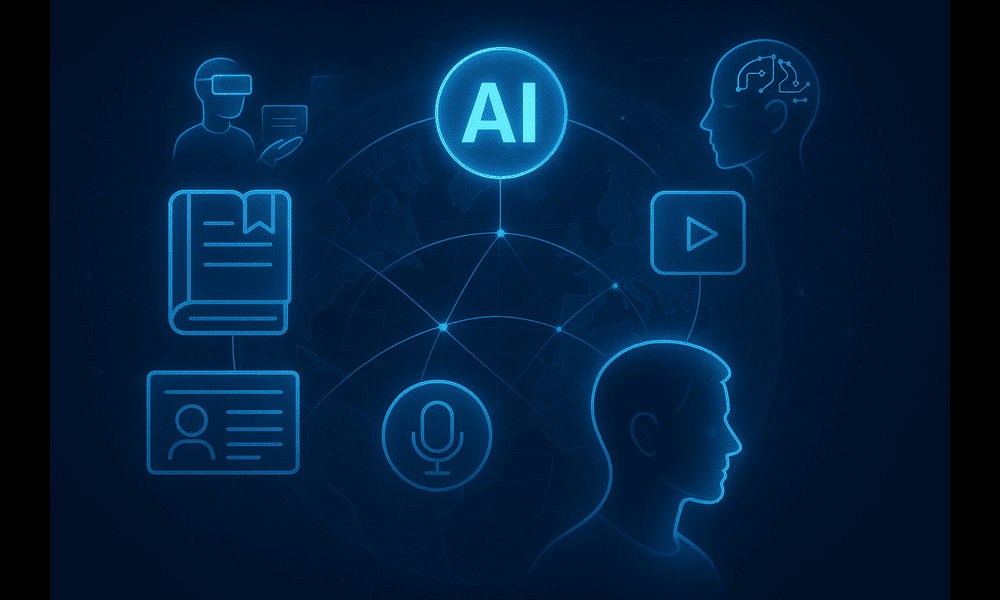In today’s digital-first business environment, a striking reality confronts marketing leaders: 70% of the B2B buying journey happens before a prospect ever speaks to a salesperson. This shift isn’t just a trend - it’s a fundamental change in how purchasing decisions are made.
Modern buyers don’t wait for a call or a demo. They research solutions, compare vendors, seek peer validation, and often build shortlists long before interacting with sales teams. For global marketing leaders, this creates a vital challenge and opportunity: how do we guide prospects during their self-education phase with the right content strategy?
At Powerling, we believe the answer is clear. Education must come first. Brands that educate their global prospects early - intelligently, empathetically, and consistently - are the ones that build trust and drive growth.
The Rise of the Self-Directed Global Buyer
Today’s buyers are more independent and information-driven than ever. Across industries and borders, they actively search for answers, validate findings through peers and industry experts, and form strong opinions about solutions before ever agreeing to a sales call.
This pattern is consistent whether buyers are based in Paris, New York, Tokyo, or São Paulo. Everywhere, decision-makers expect access to clear, credible, and localized information that respects both their language and their business culture.
In this landscape, content isn’t just part of the marketing mix - it is the primary driver of influence. When prospects are educating themselves, the brand that delivers the clearest, most valuable, and most culturally relevant information becomes the trusted guide. Trust leads to engagement, and engagement leads to conversion.
Education-First Content: The New Competitive Advantage
The most successful B2B organizations have shifted their mindset. Rather than focusing on direct selling, they prioritize educating prospects at every stage of the journey.
Offering valuable insights without immediately pushing for a sale establishes credibility. It turns brands into trusted advisors rather than vendors. This trust is critical: according to Edelman’s Trust Barometer, 81% of buyers say that trust is a key deciding factor when choosing a solution partner.
Beyond building trust, education also helps influence complex buying groups. Today’s B2B purchase decisions often involve six to ten stakeholders, each with distinct concerns and evaluation criteria. Educational content that speaks to these different perspectives - and is available in the appropriate language and context - ensures your brand earns attention across the full committee.
Moreover, an education-first approach doesn’t slow down the sales cycle. It accelerates it. Prospects who consume well-structured, localized educational content come to the table better informed, with fewer objections and a clearer sense of needs. Sales teams can then focus on discussions about implementation, ROI, and strategic value, rather than spending valuable time explaining basic concepts.
Building an Education-First Global Content Strategy
Success begins with understanding the buyer’s journey and mapping content accordingly. During the awareness stage, prospects are trying to define their challenges, so educational materials should help them articulate their problems clearly. As they move into the consideration stage, comparative guides, expert analyses, and best practices help them evaluate different approaches. When they reach the decision stage, localized case studies, ROI calculators, and implementation guides provide the confidence they need to commit.
Throughout this process, the focus must stay firmly on the prospect’s world, not your product’s features. Content that empathizes with the buyer’s challenges, explains the consequences of inaction, and offers practical strategies to solve their problems will naturally earn more engagement and trust than content that immediately pitches a solution.
Format diversity also plays a key role. Different global audiences engage differently. Some prefer in-depth whitepapers and detailed reports. Others respond better to blogs, videos, webinars, or even quick infographics. A comprehensive education-first strategy offers a variety of formats, carefully localized to feel natural and authentic in each target market.
Of course, even the best content won’t matter if it’s not discoverable. SEO optimization is critical. Content must be structured around the keywords and search behaviors that prospects actually use, in their own language. It must be easy to navigate, intuitive to explore, and properly distributed across the global digital channels where your audiences spend their time.
Finally, marketing must collaborate closely with international sales teams. Salespeople need access to localized educational content to reinforce the messaging prospects have already absorbed. This creates a seamless buyer experience, where each interaction deepens trust and moves the prospect closer to action.
Measuring the Impact of Educational Content
The true value of education-first marketing extends beyond traditional lead generation. Success can be measured through content engagement metrics such as time spent on page, return visits, and the number of resources consumed. It can also be seen in business outcomes: shorter sales cycles, higher win rates, and better-qualified opportunities.
Critically, feedback from buyers often reveals just how influential educational content has been in their decision-making process. Organizations that consistently nurture prospects with valuable content not only see more conversions but also benefit from stronger relationships, longer customer lifecycles, and greater advocacy post-sale.
Educate to Win in Global Markets
In today’s global B2B landscape, educating prospects is not optional - it is essential. The buying journey is already 70% complete before a prospect speaks to sales. If your brand isn’t guiding prospects during their self-education phase, another brand surely will.
At Powerling, we specialize in helping organizations create multilingual, culturally adapted educational content that builds trust, accelerates global buying decisions, and fuels sustainable growth.
By leading with education, your brand doesn't just attract more prospects - it becomes the obvious partner of choice in a crowded, competitive market. Because in the end, the company that educates best will always be the company that sells best.

